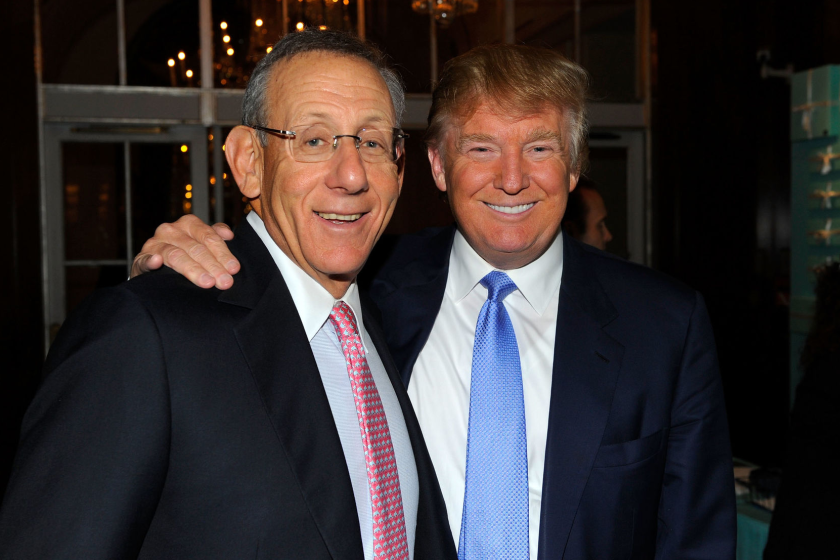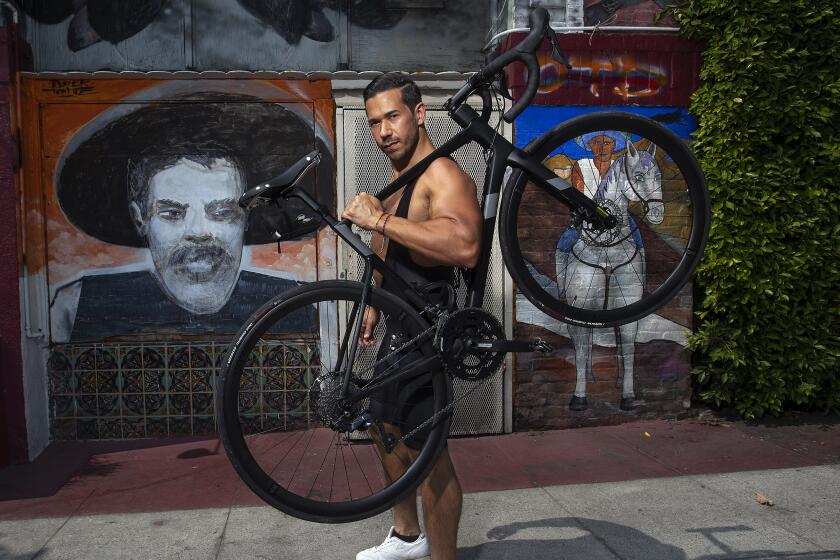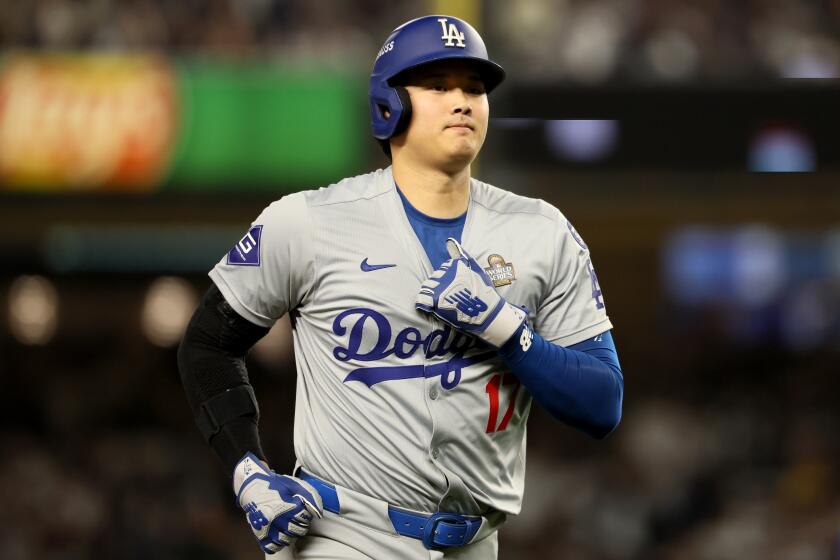Column: If Brett Favre wants to help Black athletes, he shouldn’t promote Trump’s agenda
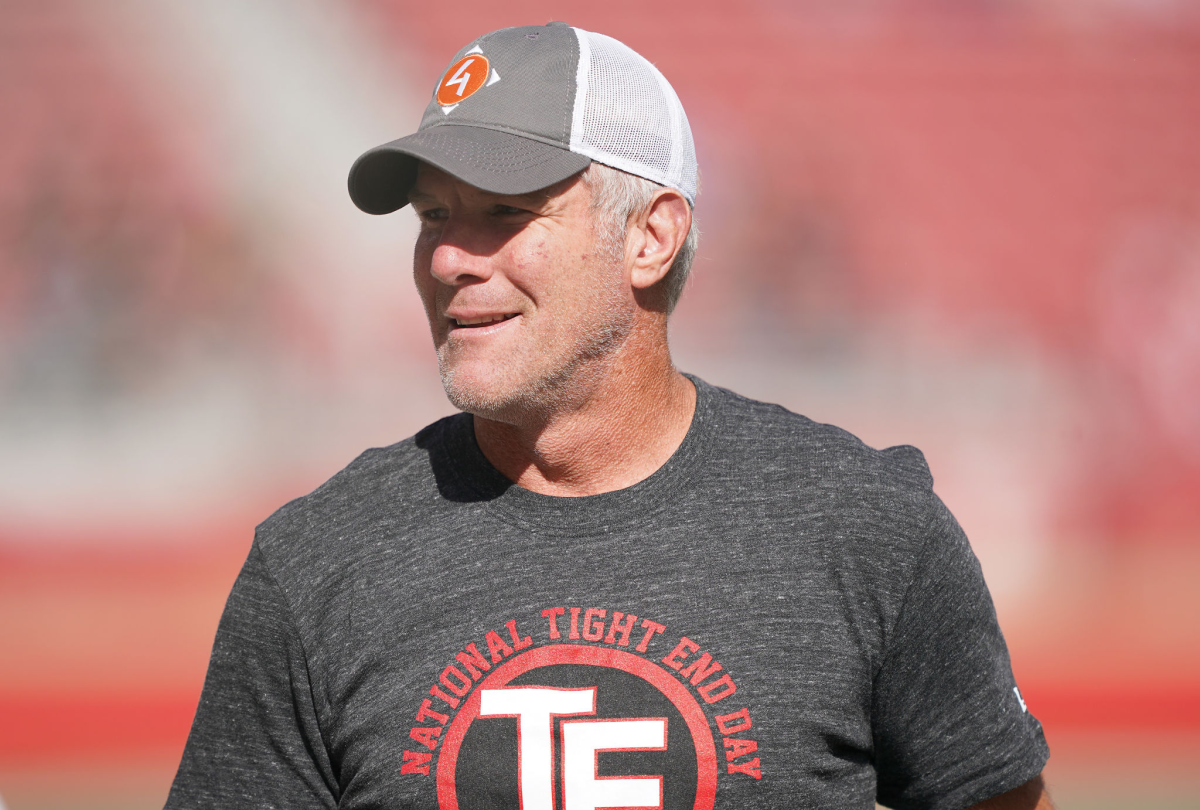
It’s amazing how far some will go to vilify the sports world’s relationship with the rest of the society as if the games are being played in a snow globe. The latest example of this nonsense is the recent exchange between NFL great Brett Favre and the not-so-great Donald Trump, who during an episode of “America This Week” returned to one of his favorite pastimes — attacking Black athletes.
Host Eric Bolling and the president were fielding questions for the Sinclair Group production when Bolling brought in Favre: “The NBA and the NFL are struggling with lower ratings, as fans clearly do not want political messaging mixed with their sports,” the Hall of Fame quarterback said. “So how should the leagues support and promote an anti-racism position without becoming political and alienating fans?”
Aaaaargh, he was so close to asking a valid question.
After all, the NBA and NFL are businesses and fan interest is how they make their money. But while it’s true ratings for the NBA Finals were down 49% from a year ago and the NFL has seen a 13% dip thus far, the Stanley Cup Finals were down a whopping 61% and yet Favre didn’t include that significant drop in his question.
Perhaps it’s because the predominantly white NHL has not been engaged in any significant political messaging, thus undermining the premise the ratings drop can solely be attributed to Black Lives Matter signage. In fact, the final round of the U.S. Open saw its lowest ratings in 30 years and I don’t recall seeing “We Shall Overcome” painted on the course. Horse racing was down as well.
Donald Trump has repeatedly told athletes and leagues to stick to sports, but he has not hesitated to marry sports and politics for his own goals.
In short, sports viewership is down across the board. Favre asked a garbage question because it clearly wasn’t about probing for answers, he was promoting the president’s agenda. If he genuinely wanted to know what leagues could do to fight racism without hurting the bottom line, he could have asked Trump directly when they went golfing together weeks before.
Of course Trump — who took time out of the debate to give a white supremacy group a shoutout— has not shown a lot of interest in helping sports fight racism, so of course he would say, “I think that football ought to get back to football and basketball to basketball,” adding, “And let politics remain separate.”
Be nice if he followed his own advice.
Kyler Murray was the No. 1 pick in the 2019 NFL draft but Trump took to Twitter to congratulate Nick Bosa, the No. 2 pick. At the time Bosa was known for his tremendous talent, support of the president and racially insensitive tweets.
The day Dr. Anthony Fauci — the world-renowned infectious disease expert whom Trump inexplicably treats as a political rival — threw out the first pitch, Trump took time out of a news briefing to make up a story about his own invitation from the Yankees to do the same.
He then claimed to have canceled his RSVP for something that he did not receive an invitation for “because of my strong focus on the China Virus, including scheduled meetings on Vaccines, our economy and much else. I won’t be able to be in New York to throw out the opening pitch for the Yankees on Aug. 15.” Keep in mind on Aug. 15 he made his 287th visit to a golf course since becoming president and we’ve lost nearly 100,000 Americans since that tweet.
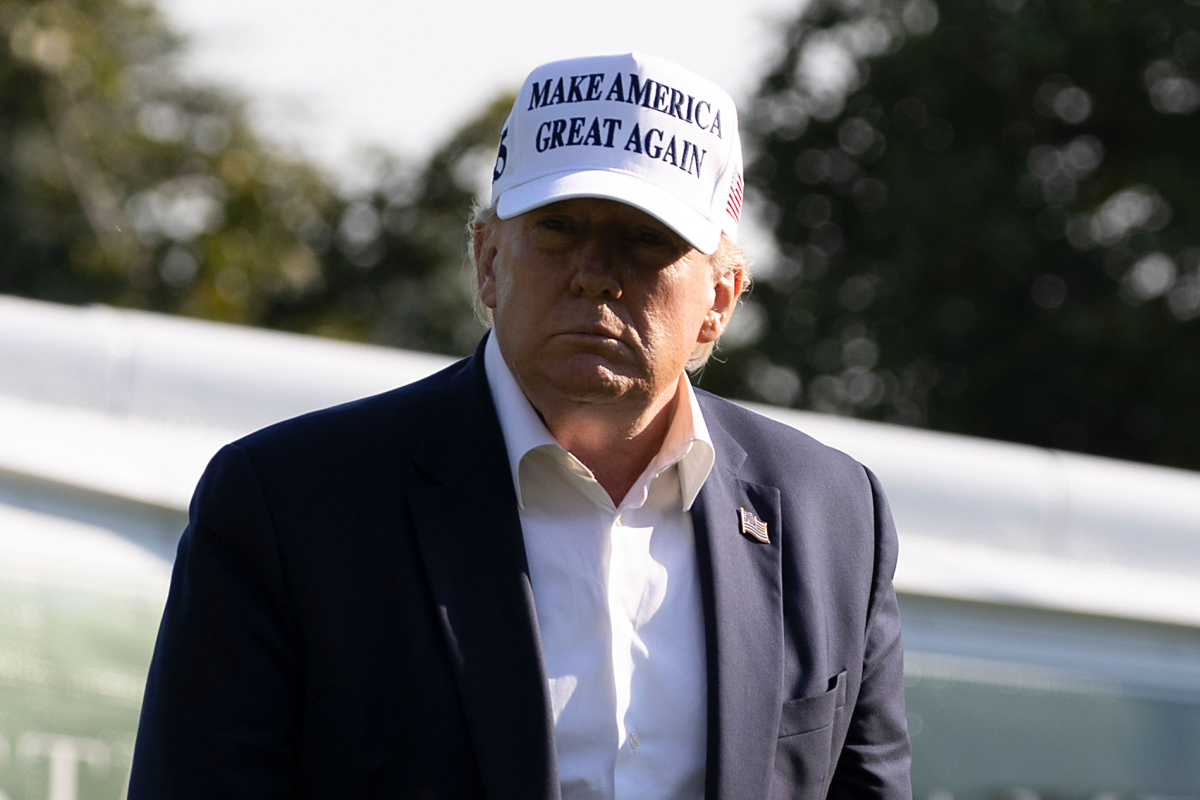
But the clearest illustration as to how Trump injects politics into sports came later in the conversation with Favre in which he claimed fans “want to have these players stand and salute, or put their hand over their heart, or at least stand for the national anthem and salute.”
All of which is rooted in politics: the anthem, saluting, flyovers … none of this has anything to do with sports. Just as the moment Game 3 of the World Series paused to promote “Stand Up to Cancer” had nothing to do with sports.
We’ve seen the platform sports has utilized to educate, celebrate and promote unity all of the time and hardly anyone gets bent out of shape by it. So why are some people so agitated that the predominantly Black NBA and NFL are using their platforms to fight prejudice? Better yet — what kind of person would find anti-racism messaging political or even controversial?
Now for his part, Favre has said he believes Colin Kaepernick, whose protest ignited this conversation five years ago, will be seen as a hero one day. In August he told USA Today: “I don’t know what it’s like to be Black. It’s not for me to say what’s right and what’s wrong. I do know we should all be treated equal. If you can’t do that, you shouldn’t be in America.”
I appreciate the sentiment though I’m not big on kicking people out of the country for not sharing my beliefs. The great experiment that we’ve embarked on as a nation isn’t designed to make us all think alike, it’s to unite around our diversity not in spite of it. That’s what sports is extremely good at, bringing people from diverse backgrounds together. Admittedly it is still a work in progress, but progress we will.
Seth Gottesdiener hopes a cross-country bike trip will help him better understand and raise awareness to issues of social injustice in the United States.
But the steps we take must be made in earnest.
Misrepresenting what the leagues are trying to accomplish or the relationship sports has with the rest of everyday life is cynical. We don’t want athletes to stick to sports. We love it when they visit the children’s hospital or raise money for hurricane relief. What some don’t want are Black and brown millionaires reminding everyone that money doesn’t insulate them from racism. So they find various ways to attack the messenger because the message makes a lot of people uncomfortable.
Or in Trump’s case — more attractive.
With less than two weeks before election day, and trailing in the polls, Trump is trying anything to fire up his base. If he has to flirt a little with white supremacy, so be it. But here’s the thing: Racial tension existed before him and it will be here after him. Yes, in many ways he’s made matters worse — not because he introduced a new element but because he exposed what was hiding in plain sight. That’s not sports’ fault but I am happy to see the leagues recognize it is their problem too.
More to Read
Go beyond the scoreboard
Get the latest on L.A.'s teams in the daily Sports Report newsletter.
You may occasionally receive promotional content from the Los Angeles Times.
